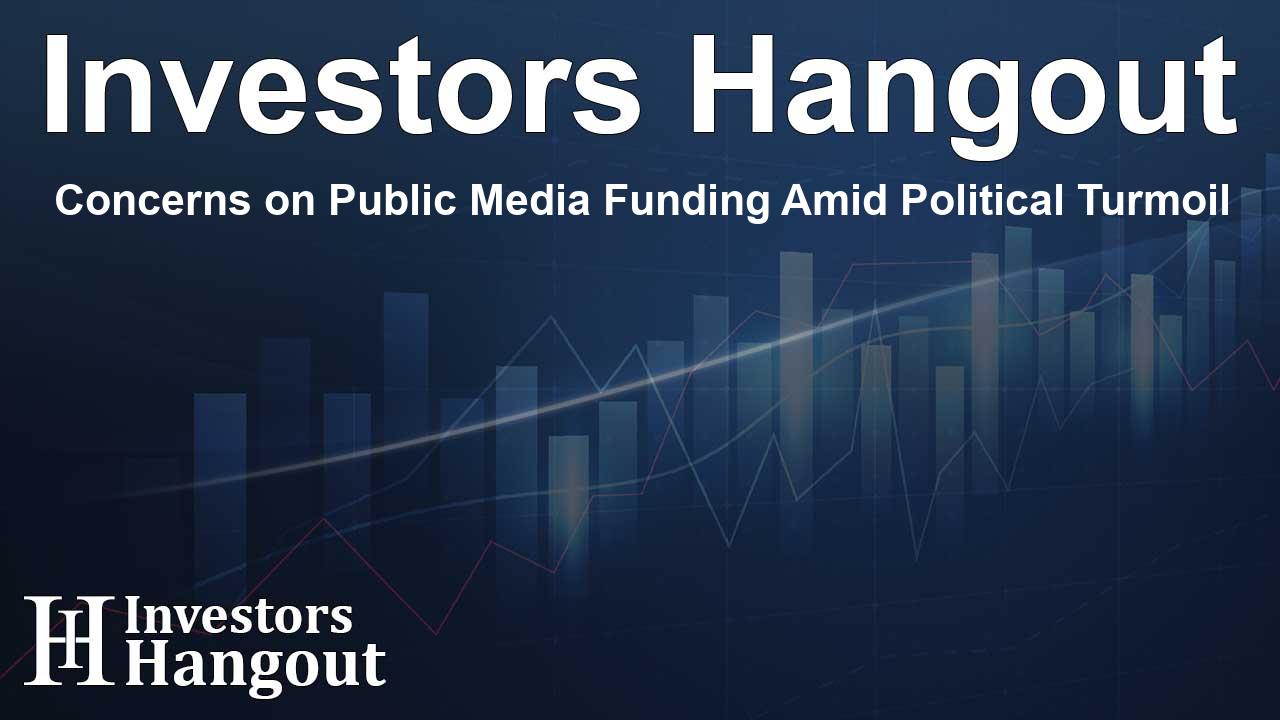Concerns on Public Media Funding Amid Political Turmoil

Concerns Surrounding Public Media Funding
In recent discussions regarding public media funding, the implications of President Trump's proposals have brought organizations like NPR and PBS to a precarious position. The potential cuts to federal funding aimed at the Corporation for Public Broadcasting (CPB) have led to significant concern among those invested in public broadcasting.
Criticism of Public Media
Historically, Trump has voiced his criticisms of public media channels, labeling them as biased. He has expressed intentions to completely eliminate federal support for the CPB. This approach to public media funding reflects an ongoing discourse within the Republican Party, which has targeted public media funding since the establishment of the CPB in 1967.
The Role of the CPB
The CPB plays a crucial role by granting funds to more than 1,500 public radio and TV stations throughout the country. This support bolsters editorial independence and facilitates local fundraising efforts. However, detractors argue that continuous funding cuts would emerge as detrimental to various rural areas that depend on local public stations for vital news and emergency information.
Allies of Trump's Movement
Influential figures have joined Trump's stance against public media. Notably, Elon Musk's comments branding NPR as “state-affiliated media” align with Trump's campaign for defunding public broadcasting. These sentiments underscore a growing coalition that questions the relevance and necessity of public funding for media outlets.
Proposed Budget Cuts and Their Impact
Trump's collaborative plan with fellow political figure Vivek Ramaswamy includes recommended reductions to CPB's substantial $535 million budget. The ongoing discussions in Congress about cutting funds to NPR and PBS reflect broader questions about the value of public media in the current socio-political landscape.
The Importance of Public Media
Public media remains an integral part of American society, with a significant majority of the population having access to public broadcasting services. This accessibility is crucial for maintaining the flow of information, particularly during crises. Critics who endorse continued funding argue that defunding initiatives would significantly compromise local journalism.
Challenges Ahead
Currently, various legislative measures aimed at defunding NPR and PBS are making their way through Congress. However, logistical challenges surrounding the transfer of emergency alert responsibilities and the CPB's unique two-year funding cycle could hinder these initiatives. The urgency of these issues highlights the complexity involved in altering or abolishing federal support for public media.
Frequently Asked Questions
What is the Corporation for Public Broadcasting (CPB)?
The CPB is a nonprofit corporation that supports public media in the United States by providing federal funding to local public stations, ensuring their operations and editorial independence.
Why is there a call to defund public media?
Calls to defund public media typically stem from criticisms regarding bias and the perceived need to reduce government spending on what some view as politically influenced media outlets.
How does public media funding impact rural communities?
In many rural areas, public media serves as a vital source of local news and emergency alerts, making its funding crucial to community engagement and safety.
What have Trump’s criticisms included?
Trump has characterized outlets like NPR as biased and has labeled them as financial mismanagement, demanding an end to their federal funding.
What is the potential impact of budget cuts to the CPB?
Significant budget cuts to the CPB could lead to reduced services provided by public media, with many local stations facing financial difficulties, which in turn affects their ability to deliver news and information to the public.
About The Author
Contact Henry Turner privately here. Or send an email with ATTN: Henry Turner as the subject to contact@investorshangout.com.
About Investors Hangout
Investors Hangout is a leading online stock forum for financial discussion and learning, offering a wide range of free tools and resources. It draws in traders of all levels, who exchange market knowledge, investigate trading tactics, and keep an eye on industry developments in real time. Featuring financial articles, stock message boards, quotes, charts, company profiles, and live news updates. Through cooperative learning and a wealth of informational resources, it helps users from novices creating their first portfolios to experts honing their techniques. Join Investors Hangout today: https://investorshangout.com/
The content of this article is based on factual, publicly available information and does not represent legal, financial, or investment advice. Investors Hangout does not offer financial advice, and the author is not a licensed financial advisor. Consult a qualified advisor before making any financial or investment decisions based on this article. This article should not be considered advice to purchase, sell, or hold any securities or other investments. If any of the material provided here is inaccurate, please contact us for corrections.
